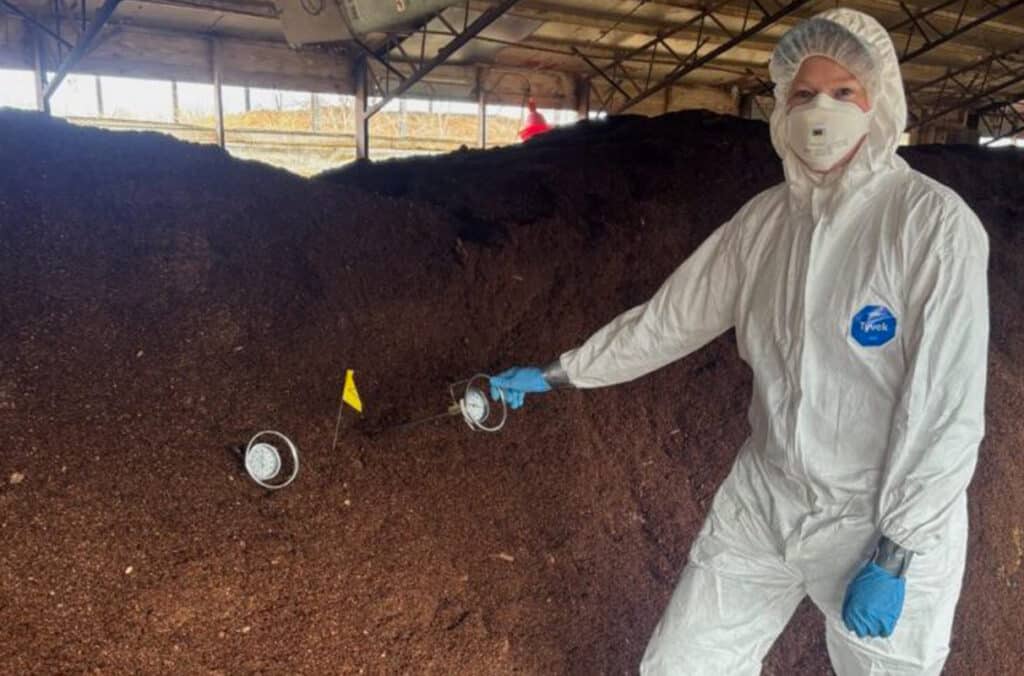Prevent Bird Flu Devastation: Learn from Washington State University’s Composting Response


Understanding Washington State University’s Role in Bird Flu Outbreak Management
Washington State University (WSU) and WSU Extension have been instrumental in helping farmers across the USA, particularly in Washington State, manage the devastating effects of bird flu outbreaks. Their expertise in animal mortality composting has proven invaluable in safely and effectively disposing of infected birds, minimizing environmental impact, and preventing further disease spread. This article explores WSU’s critical role in combating bird flu and the lessons learned that can help farms nationwide.
The Importance of Rapid Response to Bird Flu in the USA
Bird flu outbreaks can have a catastrophic impact on poultry farms, leading to significant economic losses and posing a threat to public health. Rapid response, including swift disposal of infected carcasses, is crucial to containing the virus. WSU Extension’s timely guidance and on-the-ground support have been essential in helping farmers navigate these challenging situations. The university’s research and outreach programs provide crucial information on effective biosecurity measures, disease prevention strategies, and best practices for carcass disposal.
Effective Animal Mortality Composting: A Key Strategy in Bird Flu Control
Animal mortality composting, a method championed by WSU, offers a safe and efficient way to manage large numbers of bird carcasses during outbreaks. This environmentally sound approach involves the natural decomposition of organic matter, effectively neutralizing the bird flu virus and minimizing the risk of further contamination. WSU Extension provides detailed resources and training on proper composting techniques, ensuring that farmers can implement effective disposal strategies on their farms.
Washington State University Extension: Providing Critical Support to Farmers
WSU Extension plays a vital role in disseminating knowledge and providing practical assistance to farmers facing bird flu challenges. Experts at WSU Extension offer hands-on training, workshops, and educational materials on various aspects of bird flu management, including biosecurity protocols, composting techniques, and disease surveillance. Their expertise and support empower farmers to protect their flocks and minimize the impact of future outbreaks of highly pathogenic avian influenza (HPAI).
Learning from Washington State University’s Bird Flu Response: Best Practices for USA Farms
The experience and knowledge gained from Washington State University’s response to bird flu outbreaks offer valuable lessons for farms across the USA. Implementing proactive biosecurity measures, establishing effective composting protocols, and staying informed about the latest research and recommendations from WSU Extension are crucial steps in preparing for and mitigating the impact of bird flu. By adopting these practices, farmers can protect their livelihoods and contribute to national efforts in controlling this devastating disease.
Proactive Measures: Preventing Future Bird Flu Outbreaks
Prevention is key to minimizing the risk of bird flu outbreaks. Implementing strict biosecurity measures on farms, such as controlling access to poultry houses, regularly disinfecting equipment, and implementing effective rodent and pest control programs, can significantly reduce the chances of virus introduction and spread. Staying informed about the latest updates and recommendations from WSU Extension is vital in adapting to evolving challenges and ensuring that effective disease prevention strategies are in place.
Partnering with Experts: Accessing Resources and Support
Collaboration between farmers, researchers, and extension specialists is essential in effectively combating bird flu. WSU encourages farmers to connect with their local WSU Extension offices to access valuable resources, personalized guidance, and ongoing support in implementing best practices for bird flu prevention and control.
Dreaming of studying in the U.S.? Let Studygram guide you every step of the way. From choosing your program to submitting your application, we’re here to help you make it happen. Get in touch today and take the first step toward your future at WSU!

